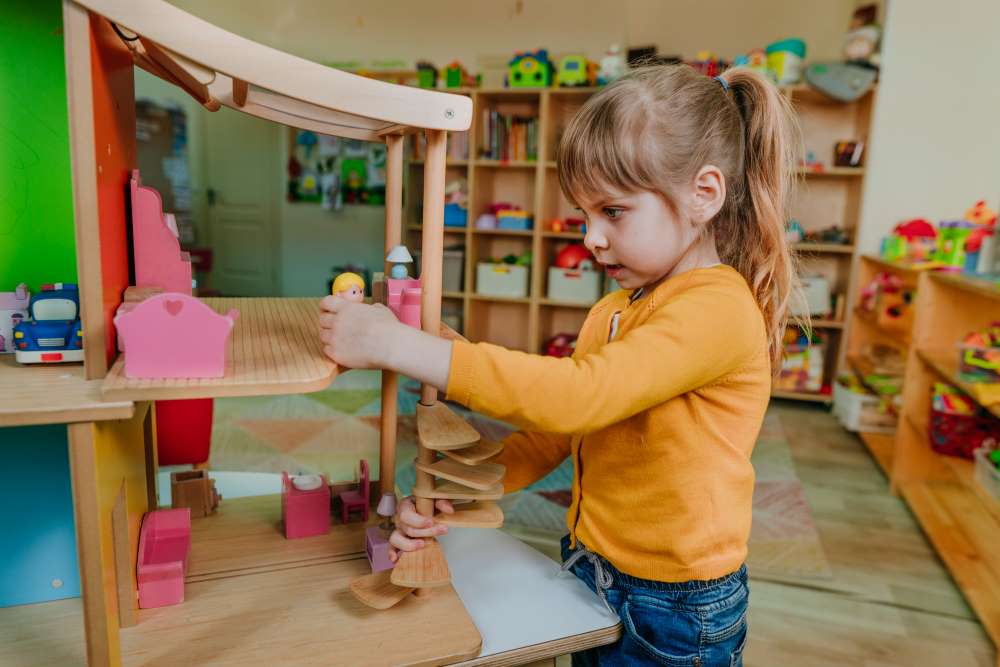
According to a survey, almost 49% of children in Australia aged between zero to 12 years received childcare at a professional facility. In March 2020, around 1,376,430 children attended approved childcare centers.
Child experts claim that it is better if parents introduce their children to learning when they are still toddlers. It helps build a strong foundation for lifelong learning while helping them grow mentally, emotionally and even physically.
Instead of hiring a nanny or settling for home care, you should put your little one in childcare like Busy Bees in Australia. These centers provide the child with excellent early learning and skill development opportunities.
They also have qualified educators who assist, guide and create an environment conducive to early learning. But before you admit your child to one of these centers, here are some questions you should ask and things you must know.
Do they have an emergent curriculum?
A good service will have an emergent curriculum based on the National Quality Framework in Australia, divided into various levels like nursery, toddler, pre-kindy, and kindergarten, depending on the child's requirements, age and interests.
For example, while the nursery level is suitable for children between zero and two years, kindergarten is meant for children above four.
Some advantages of this curriculum are improved social skills, skills in performing various tasks, better cognition, ability to understand concepts, and extended attention span.
Does the center encourage family participation?
Supporting a child in their early educational journey is a team effort involving both the parents and educators. The facility should encourage parents to participate in their children's education in various ways like playing an instrument, sharing creative skills and having regular check-in with practitioners.
Are there immunization requirements?
Some centers will not admit your child into education and care services in states like New South Wales, Western Australia, and Queensland unless you have vaccinated them.
They might ask you to submit an Immunisation History Statement, without which you might not be eligible for the childcare subsidy.
What are the things you should bring?
Most facilities have guidelines that include a set of things you should bring to the service daily. You should ask them what those are in advance to avoid confusion and inconvenience later.
These things might include a broad-brimmed hat, water bottle, backpack, two pairs of clothes like underwear, training pants, and socks. They might ask you to bring extra bed sheets (for rest time) and a comforter if necessary.
Will the child have time to rest and relax?
While playing and learning is fun, the child needs to get sufficient rest. As per the National Quality Standards set by the National Quality Framework in Australia, all centres should have spaces for quiet time during which the children sleep, rest, relax and recharge.
Do they have sun-safety practices?
Australians have one of the world's highest rates of skin cancer, primarily from too much sun exposure to ultraviolet radiation (UV).
According to the Cancer Council of Australia, even 15 minutes can cause a sunburn.
Therefore, the childcare facility should have sufficient shady areas in their outdoor spaces, preventing children from direct sunlight exposure. Places with fixed-play equipment must be located in shaded areas.
What about their nutrition policies?
Childcare services have nutritional policies that parents should adhere to consistently. Before bringing any food items, they should make arrangements with the Service Manager.
You might also consider asking them if they provide meals according to the nutritional guidelines set by Nutrition Australia and if it has the approval of Food Safety Managers and Provisions.
Putting your child in a centre like Busy Bees in Australia is one of the best decisions you can make. It helps them develop social and communicative skills, build confidence, and imbibe values like discipline, empathy and sharing, and a lifelong love for early learning.



























